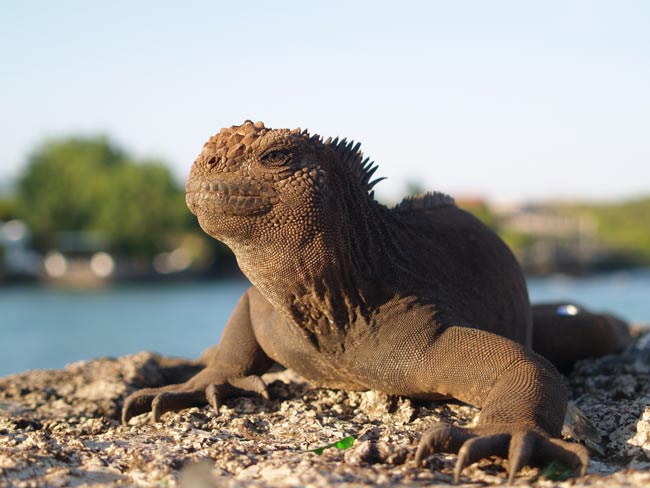Galapagos Reptiles Could Face New Threat

Mosquitoes love to feed on mammalian blood, including that of humans. However, in the Galápagos, these troublesome insects have a unique taste for reptilian blood as well and may pose a threat to the giant tortoises, marine iguanas and other wildlife on the island.
The mosquito, Aedes taeniorhynchus, is a black salt-marsh mosquito that is also found on the North and South American coasts. The mainland version of this species feeds on mammals and birds. But after making its way to the Galápagos, the mosquitoes adapted to the island’s isolation and biodiversity and began drinking reptilian blood as well, according to a new study. The Galápagos Islands, where Charles Darwin honed his evolutionary theory, are an increasingly popular tourism destination, and scientists are now worried that A. taeniorhynchus could aid infectious disease transmission on the island.
"This is a big risk when you have so many tourists," said Arnaud Bataille, the study’s lead author and a Ph.D. student in comparative biology at the University of Leeds. "You have a big risk of spreading disease across wildlife."
The study is detailed in the June 1 issue of the journal Proceedings of the National Academy of Sciences.
Scientists previously thought the mosquito was carried to the islands by humans. But after analyzing a special type of DNA, called mitochondrial DNA, scientists traced the mosquitoes' lineage and learned that they split from their mainland kin and arrived on the islands some 200,000 years ago, long before humans discovered the Galápagos around 1535. Bataille said the mosquito appears to be in the process of evolving into a new species, but further taxonomical studies are needed to confirm this idea. A. taeniorhynchus remains the only species of mosquito that live across the entire island.
In the Americas, A. taeniorhynchus, is known to transmit diseases such as heartworm in dogs, and has the potential to transmit West Nile virus, which is lethal in mammals, birds and reptiles. Those groups of animals are the mosquitoes' three feeding sources on the Galápagos. There is no evidence for such diseases on the island and scientists want to keep it that way.
To prevent transmission, scientists recommend fumigating boats along with continued fumigation of airplanes, to kill non-native mosquitoes. Potentially, a disease-carrying foreign mosquito could infect a mammal or bird on the island. A. taeniorhynchus could then transmit the disease from the infected animal to the Galápagos reptiles.
Get the world’s most fascinating discoveries delivered straight to your inbox.
Since these reptiles evolved without contact with humans or modern infectious diseases, scientists say their immune defenses are unlikely to protect them if an infection occurs.
The research was funded by the UK's Darwin Initiative scheme, an AGAPE Marie Curie Training Centre grant and the Natural Environment Research Council.
- Top 10 Mysterious Diseases
- Top 10 Deadliest Animals
- Gallery – Backyard Bugs
 Live Science Plus
Live Science Plus





